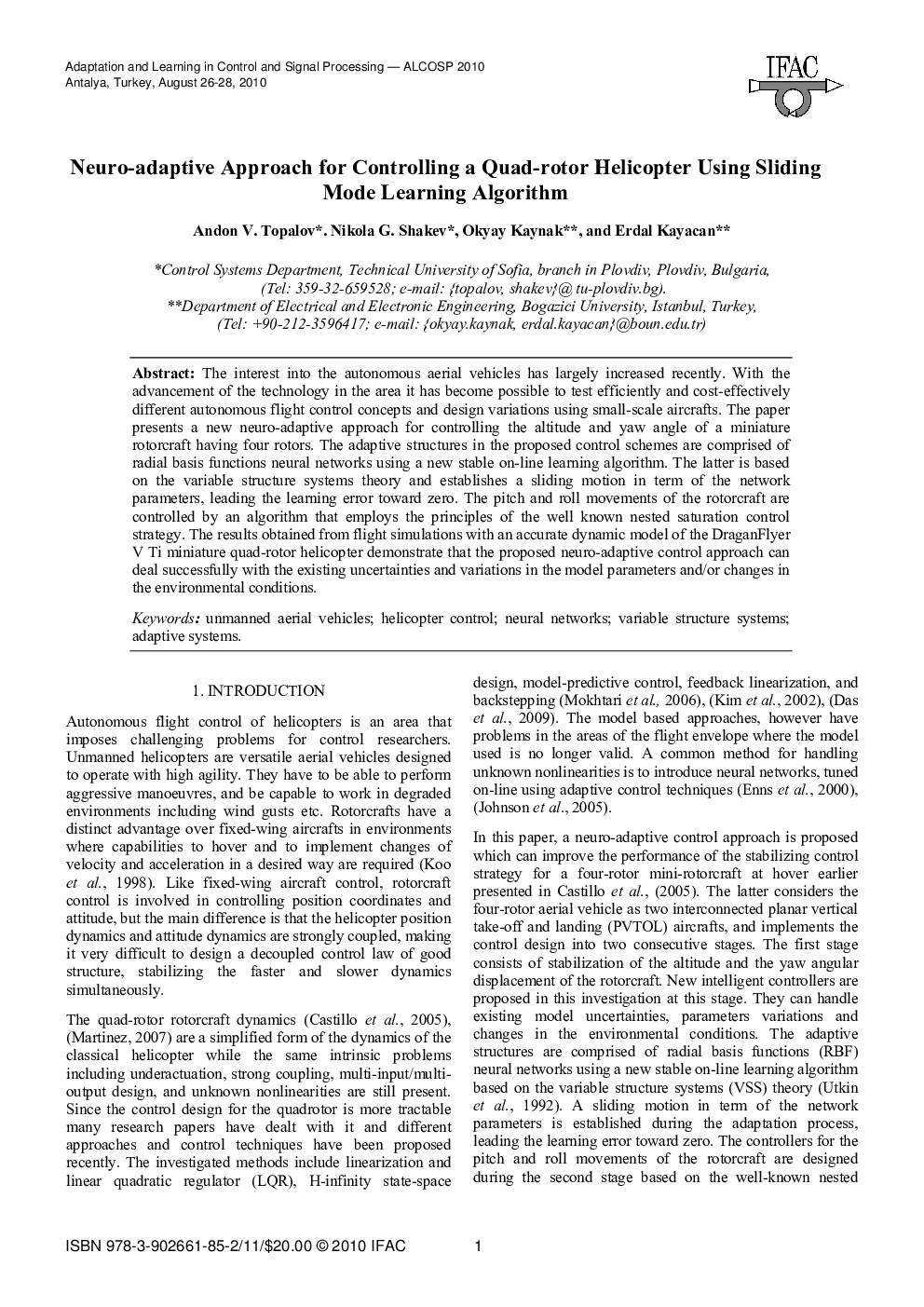| Article ID | Journal | Published Year | Pages | File Type |
|---|---|---|---|---|
| 716821 | IFAC Proceedings Volumes | 2010 | 6 Pages |
The interest into the autonomous aerial vehicles has largely increased recently. With the advancement of the technology in the area it has become possible to test efficiently and cost-effectively different autonomous flight control concepts and design variations using small-scale aircrafts. The paper presents a new neuro-adaptive approach for controlling the altitude and yaw angle of a miniature rotorcraft having four rotors. The adaptive structures in the proposed control schemes are comprised of radial basis functions neural networks using a new stable on-line learning algorithm. The latter is based on the variable structure systems theory and establishes a sliding motion in term of the network parameters, leading the learning error toward zero. The pitch and roll movements of the rotorcraft are controlled by an algorithm that employs the principles of the well known nested saturation control strategy. The results obtained from flight simulations with an accurate dynamic model of the DraganFlyer V Ti miniature quad-rotor helicopter demonstrate that the proposed neuro-adaptive control approach can deal successfully with the existing uncertainties and variations in the model parameters and/or changes in the environmental conditions.
